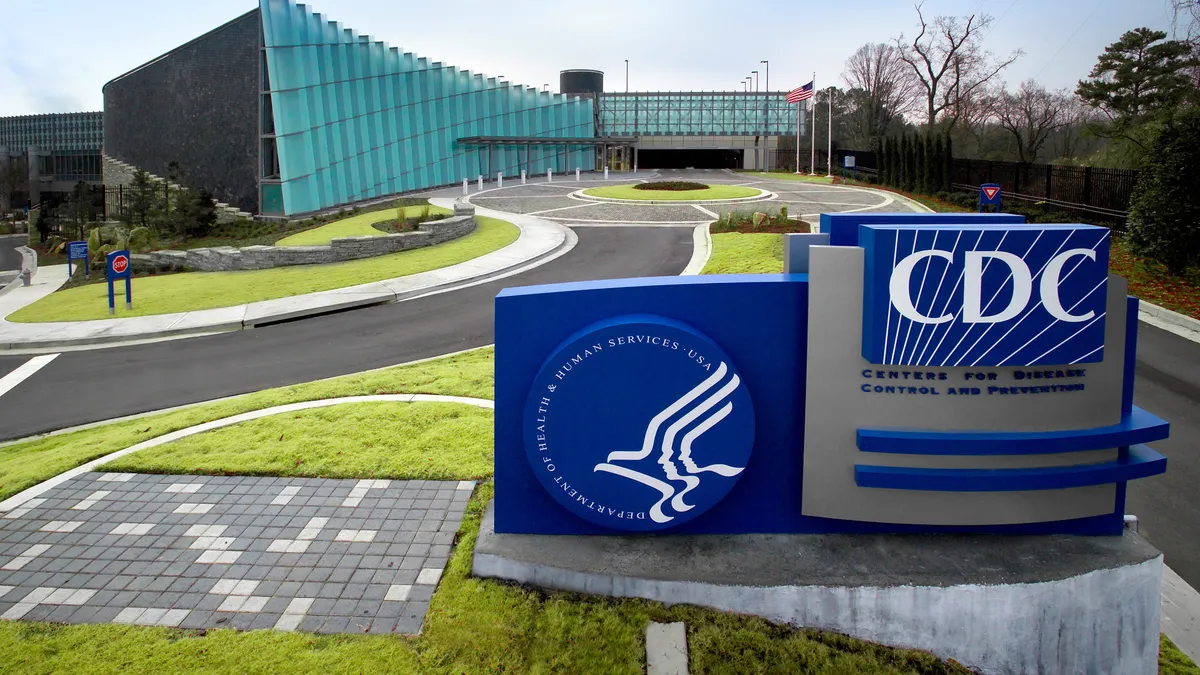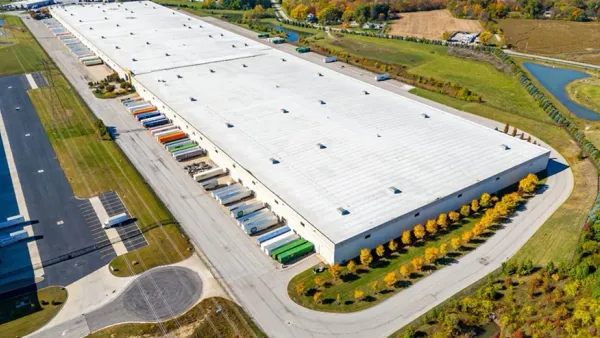Dive Brief:
- The Centers for Disease Control and Prevention (CDC) has released a COVID-19 vaccination toolkit aimed at employers of essential workers designed to raise awareness about vaccination benefits and educate employees.
- The toolkit includes a series of letter templates employers can use to address both internal business units and workers. The letter to essential workers describes the side effects associated with available vaccines and advises employees to continue to take precautions such as mask-wearing and social distancing. "It's important that essential workers like you are vaccinated because of your role in maintaining critical infrastructure operations," the template says.
- Employers also have access to a slide deck for informational meetings; fact sheets about COVID-19 vaccines; stickers to be given to vaccinated employees; a series of vaccination posters and flyers; and sample language and multimedia for social media messaging.
Dive Insight:
In late December, CDC gave the green light to state governments to place essential workers, as well as people age 75 and older, next in line to receive a COVID-19 vaccination. The CDC's Advisory Committee on Immunization Practices also recommended that logistics and transportation workers be vaccinated after healthcare personnel and frontline workers, including first responders and manufacturer laborers. Transport groups and Federal Maritime Commissioners have called for vaccination priority for supply chain workers to minimize disruptions.
While some states have moved forward in their vaccination rollout plans to include certain categories of workers beyond those in healthcare professions, others remain in the initial phase of distribution. Florida, for example, continues to prioritize persons 65 years of age and certain healthcare personnel, citing a lack of supplies.
Early studies on the impacts of COVID-19 suggest that essential workers may need to be a priority in vaccination efforts moving forward. A research paper examining excess mortality associated with COVID-19 in Californians ages 18 to 65 — which was uploaded to health sciences platform medRxiv but was not peer-reviewed — found that in-person essential work "is a likely venue of transmission of coronavirus infection" and that prioritizing such workers would be "important for reducing excess COVID mortality."
HR departments in the U.S. are likely to face questions about how their organizations will handle vaccination campaigns in the workplace. A survey earlier this month by people analytics firm Perceptyx found that employer vaccine tactics may be divisive among employees; 53% of the survey's U.S. respondents said that employers should not require vaccination. But 60% of respondents said they would get vaccinated if their employers offered an incentive of $100 or more.
Incentive programs are already gaining traction in the employer community. Chobani became one of the most recent companies to announce a vaccination incentive, offering to cover up to six hours of time for employees who get vaccinated. The company also said it is exploring hosting on-site vaccination clinics. Management-side attorneys who previously spoke to HR Dive suggested that incentives may be preferable to policies that mandate vaccination, in part because federal law may exempt certain categories of workers from such policies.
Employers that offer healthcare benefits to workers may need to address employee benefits concerns associated with vaccination. For example, employers may be able to work with their health plans and pharmacy partners to provide vaccine education and information to employees.
A.B. Brown contributed to this report.















